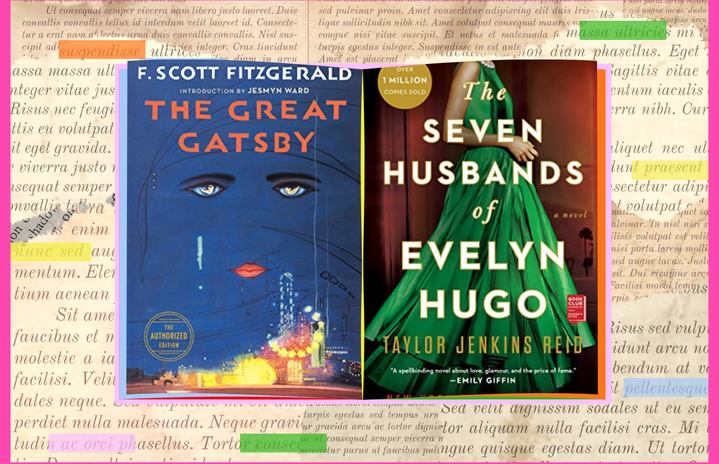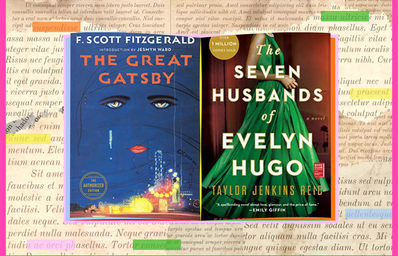“How we need another soul to cling to.” In The Unabridged Journals of Sylvia Plath, Sylvia Plath draws this quote from her lifelong search of being understood, while considering herself limited, flawed, and at the same time too much of a person to be loved.
Over time, Plath’s work has become something bigger than herself, as her struggles became relatable to many. But, the farther her literature went, the more people started idealizing how “tortured” she was as both an author and individual. Seeking solace, readers started glamorizing Plath’s real-life pains, associating trends like “sad girl era” and “girlboss personality” with her books and life.
This desired relatability with painful figures, though, is not restricted to real people. It can be also seen in the nurturing of fictional characters, for a very simple, human reason: a lot of comfort can be brought by reading about characters that are flawed, tragic, and, alas, very similar to ourselves. But why does that happen? Why do we as readers derive comfort from tortured characters? Her Campus speaks with psychological experts to find out.
Why do we love flaws?
A Secret History by Donna Tartt defines beauty as something rarely soft or consolatory. And as far as tortured figures go, there is some truth to this statement. Most of them are gritty, easily disliked by their fictional peers and not really prime examples of ethics or principles — but we still like them.
This is only proven further by the best-seller book list of 2021, which includes famously sad titles with flawed characters, like The Song of Achilles and The Seven Husbands of Evelyn Hugo. Achilles, for example, is shown to be stubborn and overconfident throughout the story, traits that eventually lead to his demise. Evelyn Hugo goes as far as stating she is flawed herself, as she coins iconic phrases like “I’m under absolutely no obligation to make sense to you” and “Don’t ignore half of me so you can fit me into a box.”
So, annihilatingly beautiful, maybe. But, while moved by pain, it makes no sense that these flawed characters can be comforting at all. However, Ryan C. Warner, clinical psychologist at 1AND1 Life, tells Her Campus that “watching characters go through hard times and experiencing negative emotions on the page can bring a feeling of companionship and understanding. Seeing tragedy represented in art creates the opportunity to experience all those emotions in a safe environment.”
“Seeing tragedy represented in art creates the opportunity to experience sad emotions in a safe environment.”
That is, in fiction, sad scenarios can go down, but in a contained way: the outcome is predicted and written out in pages, which can be shut out at any given moment if you feel too uncomfortable or triggered.
Reading about Flawed characters can evoke a sense of catharsis
Dr. Sanam Hafeez, New York City-based neuropsychologist, explains to Her Campus that the reason why we cling so tightly to characters that are going through a hard time is because it is what makes them more ‘heroic.’ “Prior to them making it to the ‘hero stage,’ we are in the narrative empathy stage, and we want to jump in and relieve them of their trauma,” Dr. Hafeez tells Her Campus.
“If someone is unhappy, misery loves company.”
Reading about tortured heroes can bring out a sense of catharsis — that is, a release of negative emotions like stress, anxiety, and sadness through the outlet of fiction. “If someone is unhappy, misery loves company,” Dr. Hafeez says. “Everyone feels unhappy at some point, so there is a degree of relatability to some point depending on the level of ‘torture.’”
Flawed characters help readers affirm that it is okay to feel sad sometimes
In addition to that, the pursuit of sadness through these characters can be linked, simply, to the desire to feel bad. A 2020 study by the Goethe University Frankfurt points out that consuming sad media can be a way of “evidence” to one’s suffering, as it is sustained by self-verification motivation.
To be put simply, according to this train of thought, tragedy isn’t necessarily consumed to feel pleasure, but rather to affirm that a person is sad and that it is okay to feel sad sometimes. This self-verification is satisfying because it maintains the image a person has of themselves of being depressed, tragic, or tortured as well.
“Starting to identify with a character and see yourself as ‘tortured’ in real life can lead to playing the role of victim or feeling as if people are out to get you.”
However, idolizing tortured and flawed characters doesn’t come without consequences. “Starting to identify with a character and see yourself as ‘tortured’ in real life can lead to playing the role of the victim or feeling as if people are out to get you,” Dr. Hafeez explains to Her Campus. Trying to relate too deeply with tortured heroes can make readers try to see themselves in that role, which can be harmful.
After all, seeing our flawed heroes go through trauma and see the end of it attaches meaning to their suffering, and, indirectly, to ours too. But this can only lead to a constant search for a bigger reason behind pain.
Sure, you can have a favorite misunderstood character that you cheer and have a soft spot for. It’s part of being a reader, and who knows how many of those I have too. But, at the end of the day, keep their torture within the pages. After all, they are still only fiction. Pain is pain, and what makes the characters meaningful lies way beyond their trauma.


